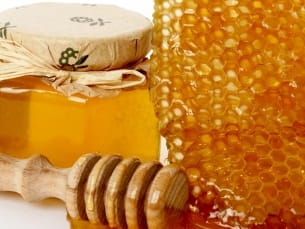Botulism and Honey: What's the Connection?

The Bottom Line
Botulism is a rare but dangerous type of poisoning that affects the nervous system. Honey can contain botulism spores; these spores release a toxin that can poison infants. The most dangerous effect of botulism is paralysis of the diaphragm, which means the infants cannot breathe on their own without a ventilator until the disease is cured.

What is botulism?
Botulism is a condition caused by toxins that affect the nervous system, which are released by the soil bacteria Clostridium botulinum. In adults, most cases result from improperly handled foods prepared in the home. The toxin produced by the bacteria accumulates in contaminated food. Many cases of botulism can be traced to large gatherings with shared food, like group picnics. Botulism causes breathing difficulty and muscle paralysis and can be fatal.Can honey cause infant botulism?
Infant botulism is the most common form of botulism in the US and Canada. Children under the age of 12 months are at risk of infant botulism if they are fed honey or anything with honey in it. Botulism spores can be found in honey; when swallowed, the spores develop into C. botulinum bacteria that make and release the neurotoxin.
While older children’s and adults’ stomach acid, intestinal flora, and mature immune systems provide protection from the developing spores, infants’ gastrointestinal systems are immature and can allow the spores to develop and produce the toxin.
It is important to note that there are other sources of botulism spores (soil being a common one), so honey is not the only possible source of infant exposure. However, not giving honey in any form to infants is an easy, safe way for parents to limit the risk. Of note, Honey Nut Cheerios do not pose a botulism risk to infants.
What are the early symptoms of botulism?
When botulism toxin is absorbed from the intestines, it affects the nervous system. The most common symptoms in infants are muscle weakness (the infant appears "floppy" and the eyelids can droop); constipation, sometimes for several days; poor sucking and feeding; and an unusual, weak cry. Poor feeding can quickly lead to dehydration. Weakness of the diaphragm and other respiratory muscles can lead to severe breathing difficulties.
The onset of symptoms can vary from 3 to about 30 days. Over the course of a few days, a child can become acutely ill. Treatment in a hospital’s intensive care unit, including use of a ventilator and feeding through an IV or a stomach tube, is often needed. If botulism is thought to be the cause of a child's illness, there is a treatment available, but it can take a day or more for this expensive drug to be delivered to a hospital. The drug can shorten the length of time that a child must be on a ventilator.
Can you check for botulism in your honey?
Detection of C. botulinum spores and toxins requires sophisticated laboratory testing. There is no way for a parent to perform such testing at home.What to do if you suspect botulism poisoning
If you suspect a case of botulism poisoning, or if you believe your infant may have recently ingested honey, contact Poison Control. Help from experts is available through the webPOISONCONTROL online tool and by phone at 1-800-222-1222 Poison Control’s expert guidance is always free, confidential, and available 24 hours a day.Rose Ann Gould Soloway, RN, BSN, MSEd, DABAT emerita
Clinical Toxicologist
Poisoned?
Call 1-800-222-1222 or
Prevention Tips
- Do not feed honey or products containing honey to infants under 12 months of age.
- Make sure that all foods are properly washed and thoroughly cooked before serving.
This Really Happened
A 6-week-old boy was brought to an emergency room with a 2-day history of decreased activity, weak cry, and poor feeding. He had been fed 1 teaspoonful of honey every day for 2 weeks prior because of constipation. The brand and country of origin of the honey were not reported. The boy was admitted to the hospital and became increasingly limp, showing only movement of his fingers and toes. He had facial and eyelid drooping and flaccid paralysis (characterized by weakness and poor muscle tone), including his breathing muscles. A diagnosis of infant botulism was confirmed by cultures of stool and honey samples. The boy remained on a ventilator for 67 days. When he was able to go home, he still had muscle weakness and required feeding through a nasogastric tube. However, 3 months later, his neurological examination was normal (from van der Vorst et al., 2006).For More Information
References
Poisoned?
Call 1-800-222-1222 or
Prevention Tips
- Do not feed honey or products containing honey to infants under 12 months of age.
- Make sure that all foods are properly washed and thoroughly cooked before serving.
